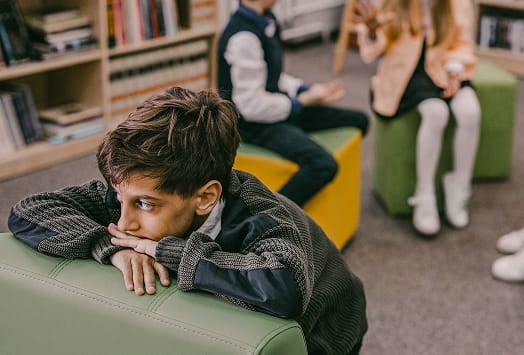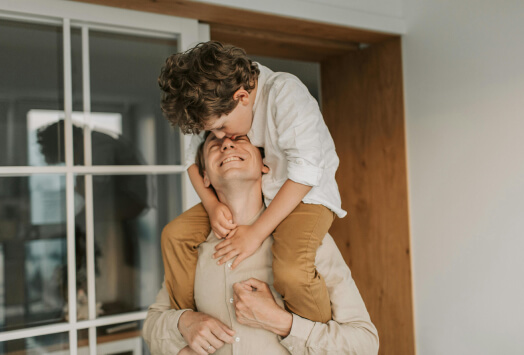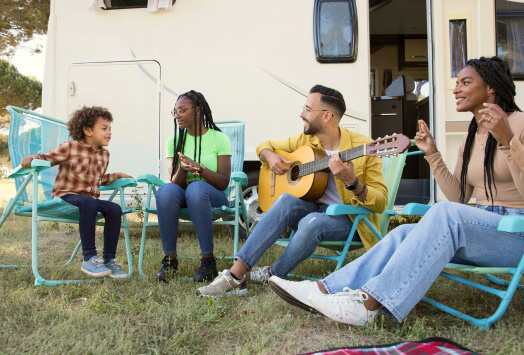As parents it’s our job to help our children learn to take care of themselves. This includes doing things like learning to eat independently, go to the bathroom, and get dressed. It also includes things that children will likely find less preferable like wearing a bike helmet or going to the dentist. Why might your child not want to go to the dentist? Perhaps they find it to be scary or strange.
Kids have fears. It is unavoidable. It’s going to happen. How we respond to their fears and anxieties really matters. It’s so important that children don’t feel alone with their fear.

Reasons children (and adults!) might fear the dentist
- Fear of the unknown: What is this place? Why is it so different from any place I’ve been before? Sometimes a place just being so very different from home is enough to make a young child wary. They might be wondering: Am I safe here?
- Medical fear: Some children have had previous bad experiences at a doctor or dentist. Some of those experiences might even be from before they can remember. Even without a bad experience a child can have some wariness around the invasiveness and tools seen and experienced at a dentist’s office. They are afraid of being out of control or surprised by what will happen.
- Sensory aversions: A visit to the dentist’s office includes a lot of sensory information for a young child to process. The sights, sounds, tastes, and smells may be more than they are able to cope with while maintaining a sense of safety and well-being.
- Fear of separation from their parent: Whether it is the waiting room or even the other side of the room they are in, having to lay back in a chair without your caregiver right beside you might be enough to instill fear. Or perhaps your child is currently having a hard time with separation at school or daycare and this dental experience is triggering that “don’t leave me!” response.

How to help your child with their fear of the dentist
Aside from the obvious thing to do: Keeping your kid’s teeth healthy so as to avoid negative dental experiences, here are some suggestions:
- Empathize and be with them in their fear: Let your child know that you understand their fear. With genuine empathy, re-state what they have said to you in the past about what they are afraid of. Do not explain it away. Do not say why the fear is unfounded. Just share what you know about their fear and maybe even layer in some things you know about what scares them (even if they may not have necessarily verbalized it yet). Hearing it back will allow them to feel safer because they won’t feel isolated, they know that someone truly understands them and how they feel. This will make it less scary.
- Exposure to positive associations: It might be helpful to normalize the experience with favorite characters from TV and books who also go to the dentist. Daniel Tiger, Sesame Street, and Berenstain Bears all have storylines about going to the dentist. Or for older kids some informational videos online, tailored to their age, about what dentists do to care for teeth, etc. Note: I do recommend watching/reading these yourself first to ensure they are the right fit and that they will actually be reassuring.
- Have a friend, sibling, or cousin share their positive experiences and stories: Enlist help from people in your child’s life to make the experience less scary. Have them tell your child about the funny sunglasses they got to wear in the dentist chair, the TV on the wall playing movies, the games in the waiting room, and the prizes at the end.
- Practice playing dentist at home: At teeth brushing time in the evening, have them lay back and you brush and floss their teeth for them while pretending to be a dentist. You can add to this by using a little flashlight and a funny dentist voice. Keep it light and amusing but not too silly, you want it to feel like practice for the real thing. You can also invite them to be a dentist too and let them gently brush your teeth. This gives them a sense of control.
- Visit in advance: This one could work for you or against you, so you really have to know your child here and think it through. If seeing that it’s a fun place will help your child, then go ahead and plan a little meet and greet and/or tour. If going there may ramp up their anxiety in advance, skip this.

If your child is fearful, you may find yourself avoiding the dentist, thus making things worse. Start going early and regularly to build a tolerance and increase the number of positive experiences. If they’re already scared, remember: Just as important as helping our children face their fears is HOW we do it. Listening and empathizing, and letting them know that you understand, matters a great deal and will make a huge difference in their ability to cope. You got this!

















